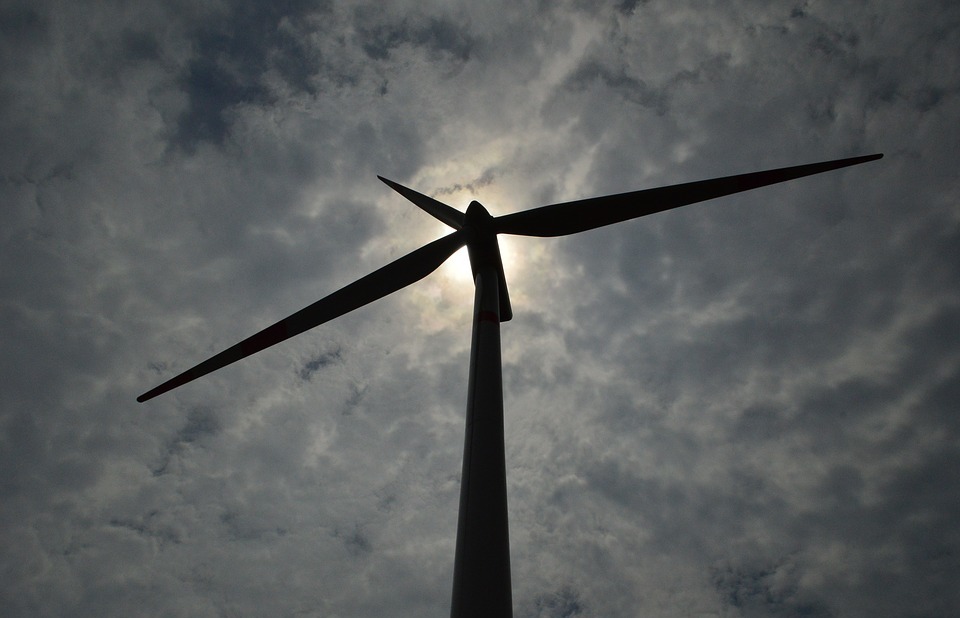This article dives into the intriguing world of feline flatulence, uncovering the causes, characteristics, and potential implications of cat farts. We'll examine the science behind this sometimes-odorous phenomenon, explore the factors that influence its frequency and intensity, and provide insights into how to manage any potential issues. Join us as we unravel the secrets of cat farts and shed light on this often-overlooked aspect of feline behaviour.
Part 1: The Science of Cat Farts

1.1. The Digestive Process and Gas Production
Cats, like all mammals, possess a sophisticated digestive system designed to break down food into absorbable nutrients. This intricate process involves a complex interplay of enzymes, bacteria, and muscle contractions. As food travels through the digestive tract, it undergoes various chemical transformations, generating gas as a byproduct.
1.2. The Role of Gut Microbiota
The digestive system of cats is a bustling ecosystem teeming with a diverse population of bacteria known as gut microbiota. These bacteria play a crucial role in the breakdown of certain types of food, particularly fibre. The fermentation process carried out by gut bacteria is a primary source of gas production in cats.
1.3. Types of Food that Contribute to Gas Production
Certain types of food are more likely to contribute to gas production in cats. These include:
- High-fibre foods: Foods rich in fibre, such as certain vegetables and grains, can be fermented by gut bacteria, leading to increased gas production.
- Legumes: Beans, peas, and lentils are known to cause gas in both cats and humans.
- Dairy products: Some cats are lactose intolerant and may experience gas and bloating after consuming dairy products.
1.4. Common Gases Found in Cat Farts
The composition of cat farts can vary depending on diet and other factors. However, the most prevalent gases include:
- Methane (CH4): A potent greenhouse gas produced by the breakdown of fibre, particularly cellulose.
- Carbon Dioxide (CO2): A natural byproduct of respiration and digestion, it's also produced during the breakdown of carbohydrates.
- Hydrogen (H2): A flammable gas produced by the fermentation of certain carbohydrates, particularly sugars.
- Hydrogen Sulphide (H2S): A foul-smelling gas responsible for the characteristic "rotten egg" odour in some farts, produced by the breakdown of sulfur-containing compounds.
1.5. Factors Influencing the Odour of Cat Farts
The odour of cat farts is influenced by the specific gases present and their concentrations. Hydrogen sulphide (H2S) is the primary culprit behind the pungent "rotten egg" smell. Other factors influencing odour include:
- Diet: The type and quality of food a cat eats can significantly impact the odour of their farts.
- Gut bacteria: The composition and activity of gut bacteria can vary between cats, influencing the types and amounts of gases produced.
- Individual sensitivity: Some cats may naturally produce stronger-smelling farts due to individual differences in their digestive system and metabolism.
Part 2: Factors Affecting Cat Flatulence

2.1. Diet and Dietary Changes
The type and quality of food a cat consumes have a significant impact on the frequency and odour of their farts. Certain ingredients, such as high-fibre foods, can increase gas production. Sudden dietary changes can also disrupt the balance of gut bacteria, leading to temporary changes in flatulence.
2.2. Food Sensitivities and Allergies
Some cats may have sensitivities or allergies to certain food ingredients, such as dairy, wheat, or soy. These reactions can manifest as digestive upset, including increased flatulence, diarrhoea, vomiting, and skin problems.
2.3. Medical Conditions
A number of medical conditions can contribute to excessive or foul-smelling flatulence in cats. These include:
- Inflammatory Bowel Disease (IBD): A chronic condition that causes inflammation of the intestinal tract, often leading to diarrhoea, vomiting, weight loss, and abdominal pain.
- Parasites: Intestinal parasites such as roundworms, tapeworms, and coccidia can disrupt digestion and lead to increased gas production, diarrhoea, and weight loss.
- Pancreatitis: Inflammation of the pancreas can impair digestion and cause malabsorption, leading to diarrhoea, vomiting, and abdominal pain.
- Exocrine Pancreatic Insufficiency (EPI): A condition where the pancreas doesn't produce enough digestive enzymes, resulting in maldigestion and diarrhoea.
- Megacolon: A condition where the colon becomes abnormally enlarged, leading to constipation, straining, and possibly gas build-up.
- Gastrointestinal Obstruction: A blockage in the digestive tract caused by foreign objects, tumours, or other factors, can lead to severe gas build-up and pain.
2.4. Stress and Anxiety
Stress and anxiety can affect the digestive system, leading to changes in bowel habits and gas production. This is due to the stress hormone cortisol, which can disrupt the normal functioning of the digestive tract.
Part 3: The Characteristics of Cat Farts

3.1. Frequency and Intensity
The frequency and intensity of cat farts can vary greatly from cat to cat. Some cats may fart only occasionally, while others may pass gas several times a day. The odour of cat farts can range from barely noticeable to extremely pungent.
3.2. Sound and Odour
Cat farts can produce a range of sounds, from a gentle whoosh to a loud, explosive toot. The odour of cat farts is often described as being foul, pungent, or even "rotten egg" like. The specific odour depends on the composition of the gases present, which is influenced by diet, gut bacteria, and individual metabolism.
Part 4: Understanding Cat Farts and Their Implications
4.1. When Are Cat Farts a Concern?
While occasional flatulence is normal, excessive or foul-smelling farts can be a sign of underlying health issues. It's important to consult a veterinarian if you notice any significant changes in your cat's flatulence, particularly if accompanied by other symptoms such as:
- Diarrhoea
- Constipation
- Vomiting
- Weight loss
- Abdominal pain
- Lethargy
4.2. Managing Excessive Flatulence
Managing excessive flatulence in cats typically involves addressing the underlying cause. This may include:
- Dietary adjustments: Switching to a high-quality, easily digestible diet tailored to your cat's specific needs.
- Food elimination trials: Identifying and eliminating food allergens or sensitivities.
- Medications: Probiotics to support healthy gut bacteria, anti-inflammatories for IBD, deworming medications for parasites.
- Surgery: In cases of intestinal obstruction or megacolon.
4.3. Preventing Flatulence in Cats
While it's not always possible to prevent cat farts, certain measures can help minimize their frequency and intensity. These include:
- Feeding a high-quality diet: Choose a food that is specifically formulated for cats, contains easily digestible ingredients, and is free from common allergens.
- Avoiding sudden dietary changes: Gradually transition your cat to new foods over a period of several days to minimize digestive upset.
- Providing regular exercise: Exercise helps to stimulate digestion and reduce gas buildup.
- Reducing stress: Create a calm and comfortable environment for your cat to minimize stress-induced digestive problems.
- Maintaining a regular feeding schedule: Feed your cat at consistent times each day to help regulate digestion.
Part 5: FAQs About Cat Farts
5.1. Why Do My Cat's Farts Smell So Bad?
The foul odour of cat farts is often attributed to hydrogen sulphide (H2S), a gas produced by the breakdown of certain types of food, particularly those containing sulfur-containing compounds. The intensity of the odour can vary depending on the composition of the cat's diet and their individual gut bacteria.
5.2. Is It Normal for My Cat to Fart a Lot?
Occasional flatulence is normal for cats. However, excessive or foul-smelling farts can indicate a digestive issue. If you're concerned about your cat's flatulence, it's best to consult a veterinarian.
5.3. Can I Give My Cat Medication to Reduce Flatulence?
In some cases, your veterinarian may prescribe medication to help manage excessive flatulence in cats. This may include probiotics to support healthy gut bacteria, enzymes to aid digestion, or other medications depending on the underlying cause.
5.4. What If My Cat Has Never Farted Before?
While it's uncommon, some cats may have never passed gas. This may be due to their individual digestive physiology, diet, or a lack of exposure to certain types of food that contribute to gas production.
5.5. Are Cat Farts Harmful to Humans?
Cat farts are generally not harmful to humans. However, it's always best to practice good hygiene and wash your hands after handling your cat's litter box to minimize the risk of any potential bacteria or parasites.
5.6. What Can I Do If My Cat Farts in My Face?
While it may be unpleasant, there's not much you can do to prevent your cat from farting in your face. The best way to deal with this is to laugh it off and enjoy your cat's unique personality.
This article has explored the complexities of cat flatulence, providing a comprehensive overview of its causes, characteristics, and implications. From the science behind gas production to the factors that influence its frequency and intensity, we've gained a deeper understanding of this often-overlooked aspect of feline behaviour. By recognizing the signs of excessive or foul-smelling flatulence and consulting with a veterinarian when necessary, we can ensure the health and well-being of our feline companions.
Everyone is watching

Are Cat Ribs Flexible? Understanding Their Anatomy
CATS & KITTENSThis article delves into the fascinating world of feline anatomy, exploring the flexibility of cat ribs and ho...

Can Cats Eat Bananas? (Everything You Need to Know)
CATS & KITTENSThis article dives into the intriguing question of whether cats can safely enjoy the sweet, yellow fruit, bana...

Cat Lifespan: How Long Do Cats Live?
CATS & KITTENSThis comprehensive guide explores the factors influencing the lifespan of our feline companions, providing ins...

Can Cats Get COVID-19? What You Need to Know
CATS & KITTENSThis article will delve into the fascinating world of feline COVID-19 susceptibility. We'll explore whether ca...

Can Cats Eat Eggs? A Complete Guide to Egg Safety for Your Feline Friend
CATS & KITTENSWhen it comes to treating our furry companions, we all want to ensure we're doing what's best for them. Eggs...
